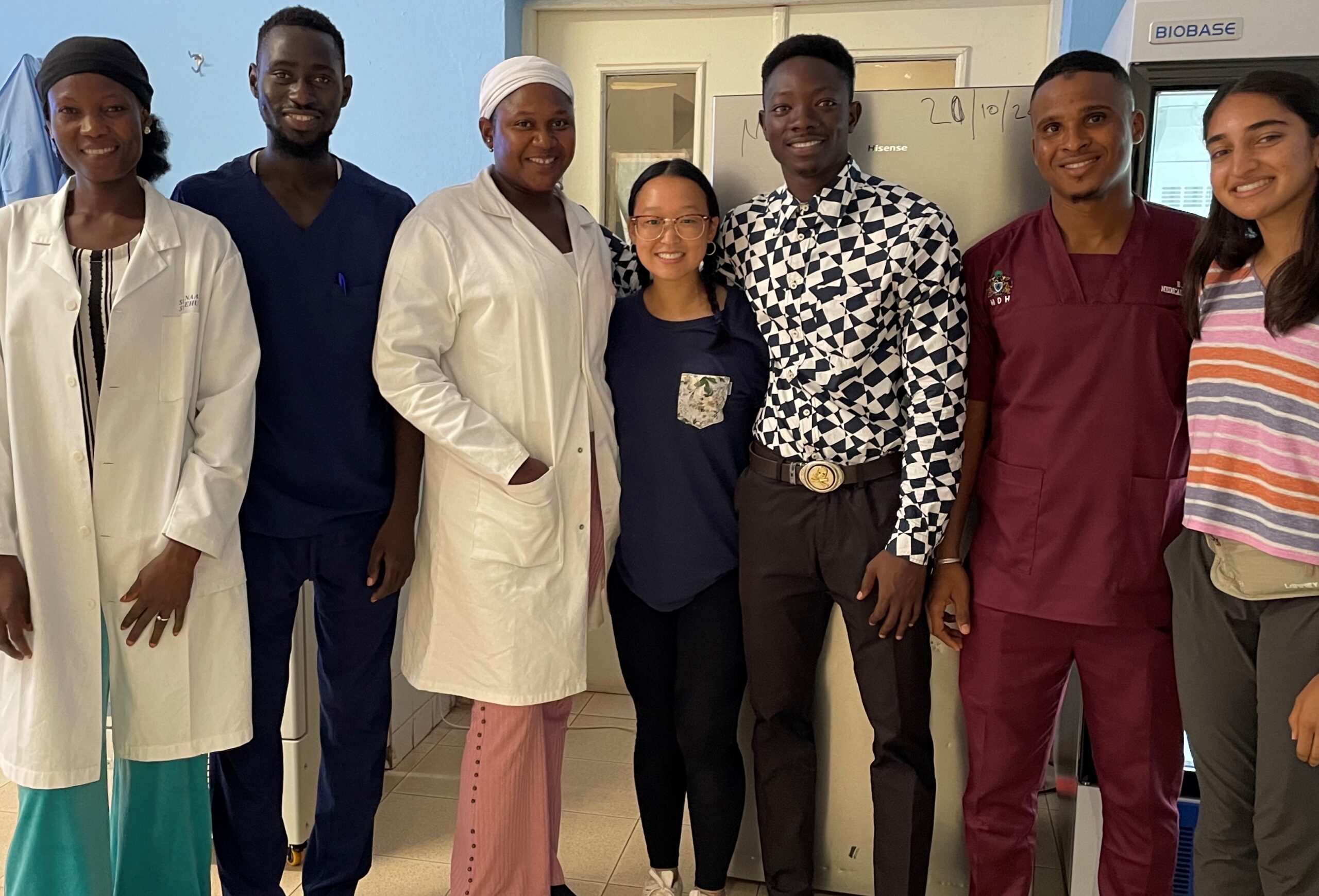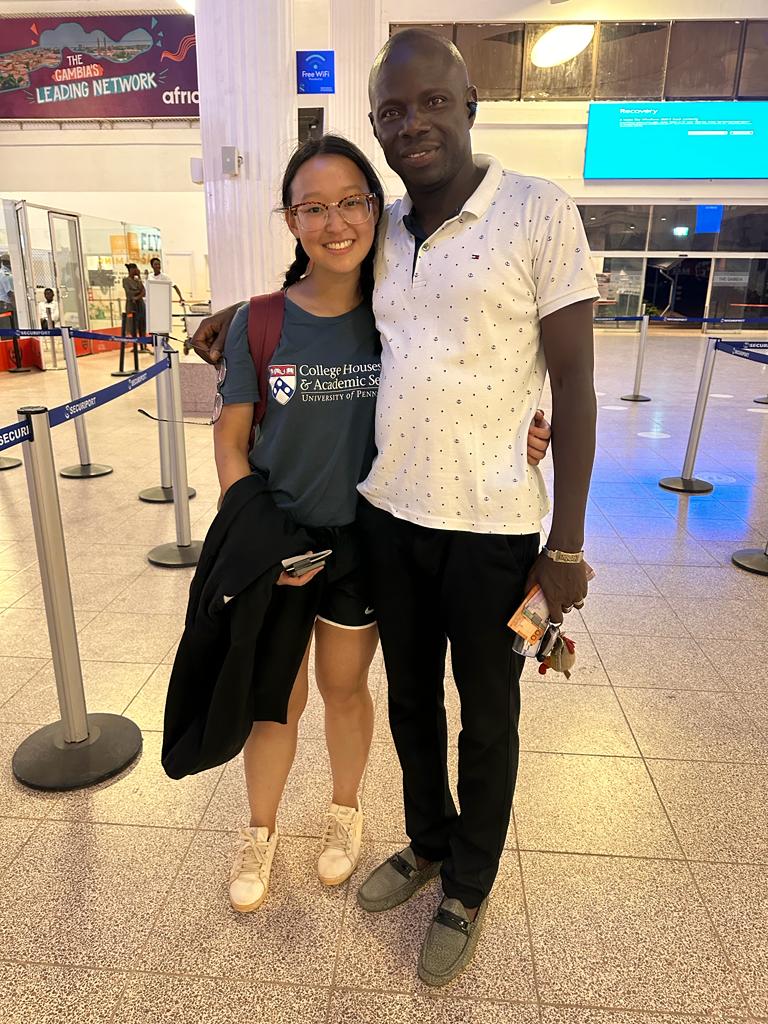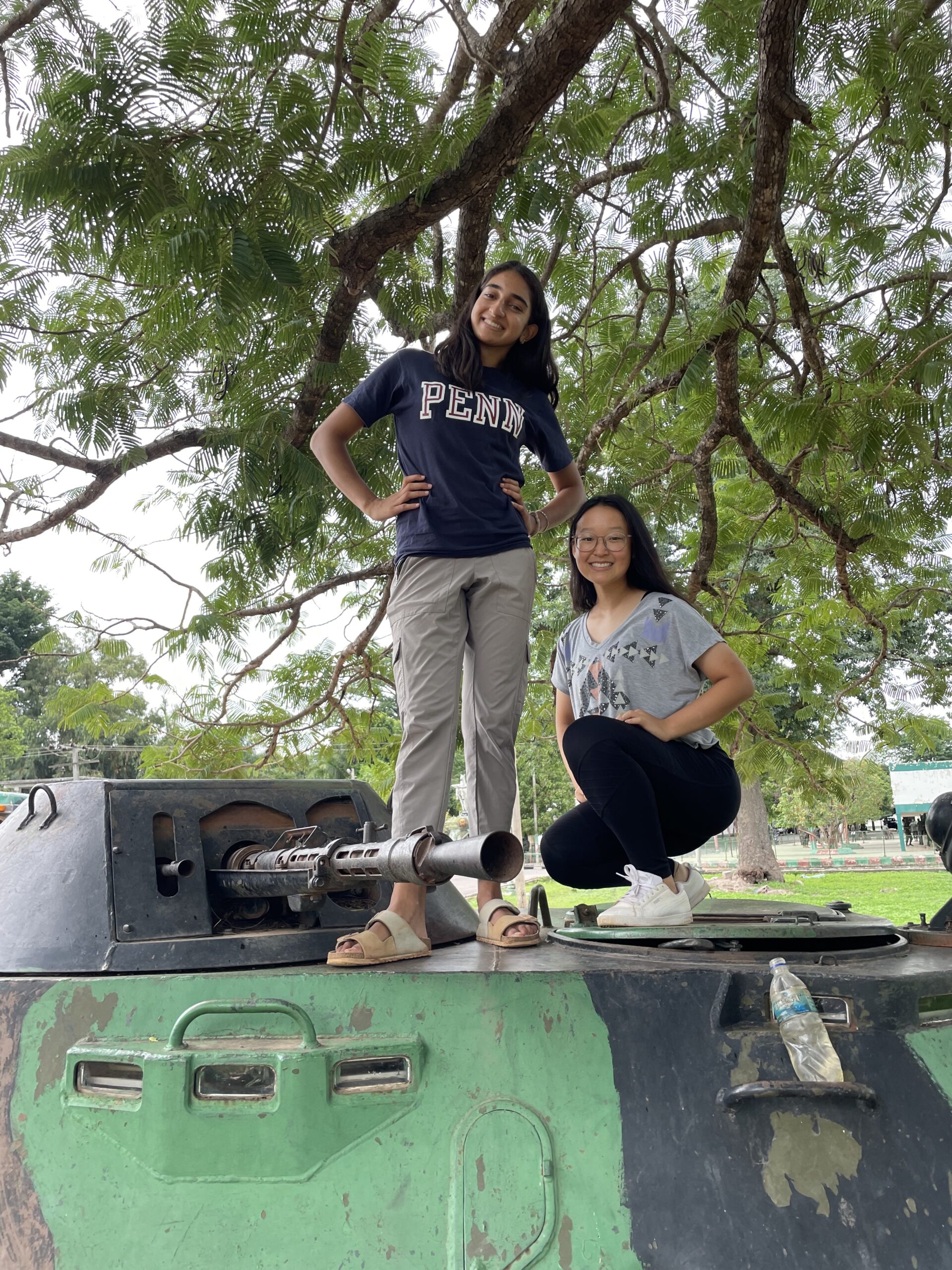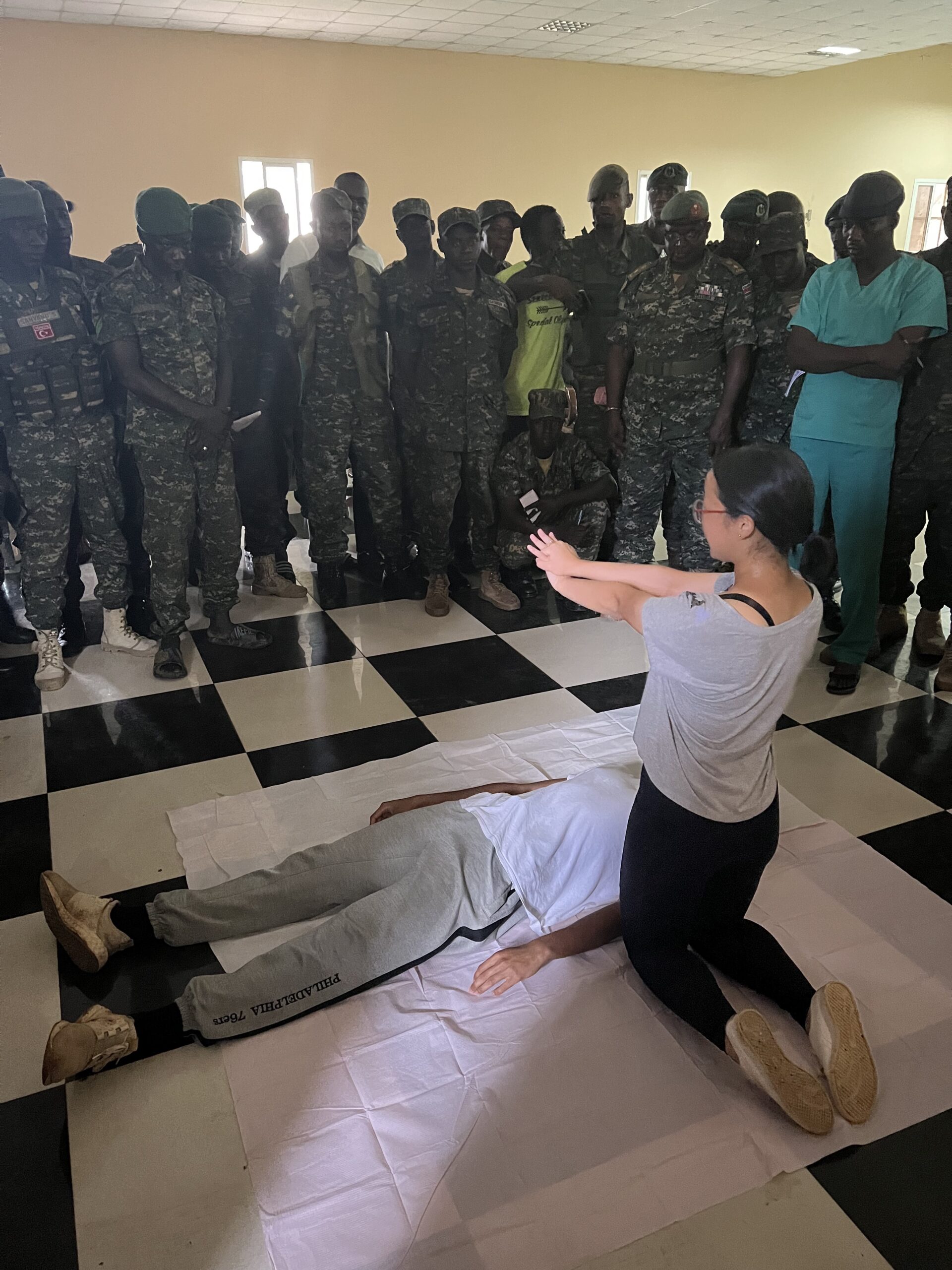Falling in Love with The Gambia
By: Lily Yan, CAS ’23

Lily and her fellow intern, Eesha Balar, with staff from the hospital laboratory.
GRIP: Power Up Gambia
Interning at Bwiam General Hospital (BGH) in The Gambia was a lifechanging opportunity that has made me rethink my future academic and career goals. This summer, my main task was to reach out to non-profit organizations to raise money that could be put towards renovating the hospital’s Maternity Ward and Operating Theater. Working alongside the CEO of the hospital, Mr. Kebba Manneh, and the other two interns, we first wrote concept notes for the two projects, complete with photos of the current state of the buildings, blueprints of the new design, and detailed cost estimates of the renovations. In my final week at BGH, I drafted a letter to the Gambia Strategic Review Board asking them to read and approve the two projects. Mr. Manneh recently delivered these documents to their office in Banjul, the capital city of The Gambia. Throughout the summer, the other two interns and I then emailed hundreds of organizations. Although we received many rejections, we persevered and heard some great news. We are now in the process of securing medical supplies and money to fund hospital renovations, and I look forward to seeing the impact our work will have on improving medical care for residents of the rural Foni Kansala region. Outside of fundraising, I assisted the administrative team with writing and editing various documents, including the 2019-2021 hospital statistics, 2023 budget, and status updates on hospital projects as of August 2023.

I also took on a personal project that is near and dear to my heart: teaching civilians how to perform CPR. Working as an EMT for three years and shadowing healthcare professionals in various hospitals has shown me that cardiac arrests can occur at any time and any place, and quick emergency response is crucial for survival. Although the attendees would not be certified in CPR after my one-hour training, it was my hope that they would learn the basics of when and how to perform the skill. Mr. Manneh called his contact at the Gambia Armed Forces and scheduled a date for me to give my presentation to soldiers at the nearby Kanilai military barracks. Training the army on CPR is impactful, as many cardiac arrests occur outside of the hospital, making it important for laypeople to know how to respond in an emergency. The soldiers can also go on to train their family members and colleagues. In the weeks leading up to the day, I prepared a PowerPoint presentation, wrote a document of all the information I wanted to cover, and rehearsed what I wanted to say.

On an early Tuesday morning, we arrived at the Kanilai military barracks and were kindly welcomed into the general’s office for a meeting before being invited to eat breakfast at their mess hall. Then, I walked into the conference room where over 50 soldiers were sitting in a row awaiting my training. After a brief introduction of my credentials by the general and the CEO, I began my presentation. I explained the indications for performing CPR, why CPR can save the life of someone in cardiac arrest and demonstrated the proper CPR technique. The soldiers then moved to form a circle around me to watch me lightly perform compressions on a volunteer, because there were no mannequins available. Then, several soldiers volunteered to serve as both rescuer and patient to practice CPR as I evaluated and corrected their form. After the hands-on training, everyone returned to their seats, and I lectured on giving rescue breaths and using an AED, before ending with a series of interactive practice questions. Throughout the presentation, the soldiers asked many questions, keenly participated in the hands-on portion, and listened attentively. As I was leaving, they thanked me for sharing my knowledge with them, asked for a copy of my presentation, and proudly informed me that they would continue practicing CPR until they were perfect at it. I responded that I would return in the next several years to see their progress!

As I depart The Gambia, my only wish is that I could have done more. I feel that my time in the country was too short, and I only scratched the surface of what I can do to help. However, I am hopeful that I will return to the smiling coast of Africa one day. Seeing patients at BGH has opened my eyes to the resources and technologies we often take for granted in American healthcare systems. After I complete medical school, I plan to return to The Gambia to share my knowledge and skills in this developing country that would benefit so much from more medical assistance. I am truly so thankful to have had the opportunity to volunteer in this country: it has introduced me to a new culture, taught me to be more resilient amidst challenges, and forever changed my outlook on humanity.
The Global Research and Internship Program (GRIP) provides outstanding undergraduate and graduate students the opportunity to intern or conduct research abroad for 8 to 12 weeks over the summer. Participants gain career-enhancing experience and global exposure that is essential in a global workforce.